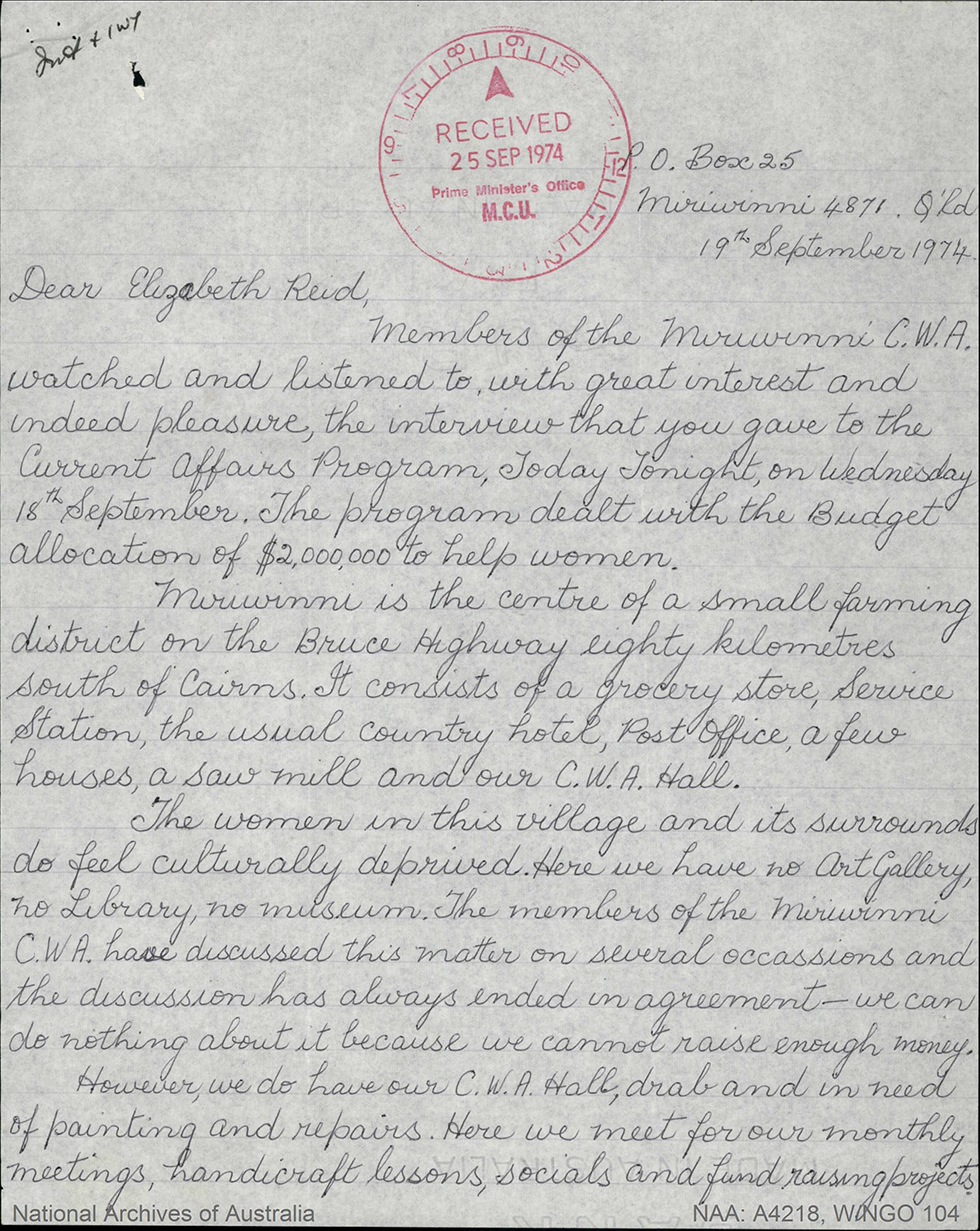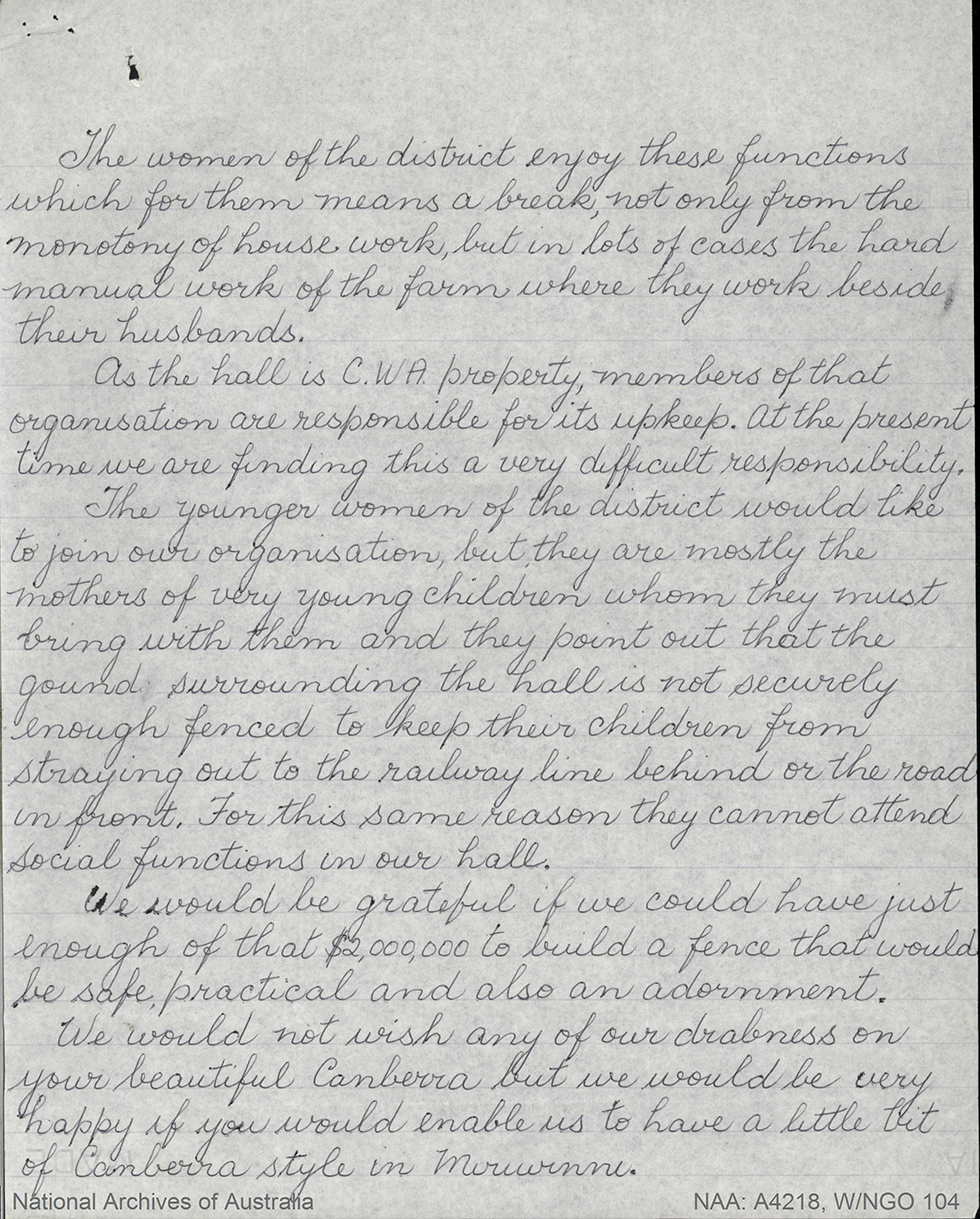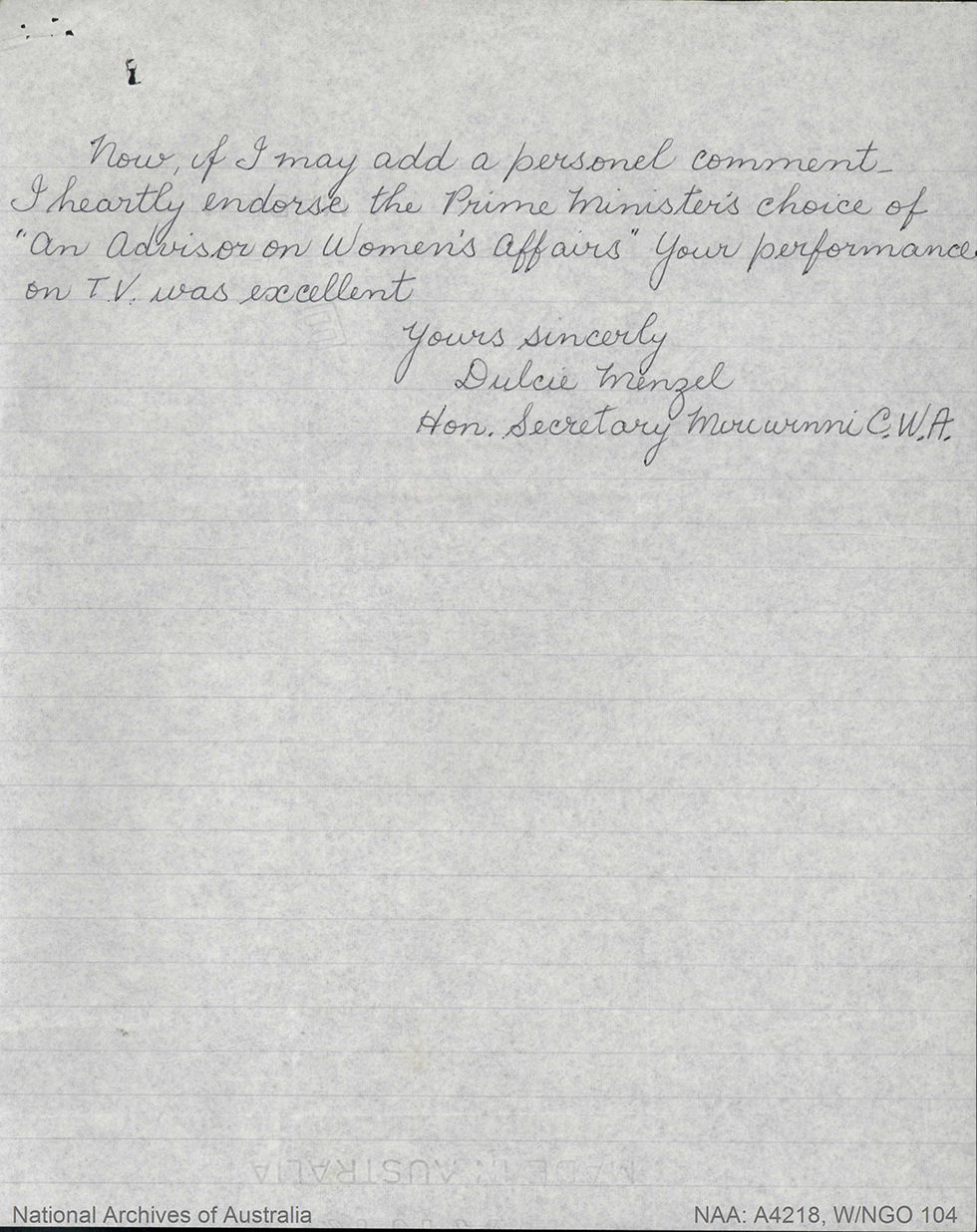


Aboriginal and Torres Strait Islander people should be aware that the National Archives' website and collection contain the names, images and voices of people who have died.
Some records include terms and views that are not appropriate today. They reflect the period in which they were created and are not the views of the National Archives.




[Page 1.]
[Handwritten note top left corner: illegible + 1wy]
[Stamp in red ink centre top page: Received 25 Sep 1974 Prime Minister's Office M.C.U.]
[Handwritten different hand]
[Right corner: P.O Box 25 Miriwinni 4871. Q'ld [sic] 19th September 1974.]
Dear Elizabeth Reid,
Members of the Miriwinni C.W.A watched and listened to, with great interest and indeed pleasure, the interview that you gave to the Current Affairs Program, Today Tonight, on Wednesday 18th September. The program dealt with the Budget allocation of $2,000,000 to help women.
Miriwinni is the centre of a small farming district on the Bruce Highway eighty kilometres south of Cairns. It consists of a grocery store, Service Station, the usual country hotel, Post Office, a few houses, a saw mill and our C.W.A Hall.
The women in this village and its surrounds do feel culturally deprived. Here we have no Art Gallery, no Library, no museum. The members of the Miriwinni C.W.A have discussed this matter on several occasions and the discussion has always ended in agreement – we can do nothing about it because we cannot raise enough money.
However, we do have our C.W.A Hall, drab and in need of painting and repairs. Here we meet for our monthly meetings, handicraft lessons, socials and fund raising projects.
[Page 2.]
The women of the district enjoy these functions which for them means a break, not only from the monotony of house work, but in lots of cases the hard manual work of the farm where they work beside their husbands.
As the hall is C.W.A property, members of the organisation are responsible for its upkeep. At the present time we are finding this a very difficult responsibility.
The younger women of the district would like to join our organisation, but they are mostly the mothers of very young children whom they must bring with them and they point out that the ground surrounding the hall is not securely enough fenced to keep their children from straying out to the railway line behind or the road in front.
For this same reason they cannot attend social function in our hall.
We should be grateful if we could have just enough of that $2,000,000 to build a fence that would be safe, practical and also an adornment.
We would no wish any of our drabness on your beautiful Canberra but we would be very happy if you would enable us to have a little but of Canberra style in Miriwinni.
[Page 3.]
Now, if I may add a personal comment. I heartly endorse the Prime Ministers choice of 'An Advisor on Women's Affairs'[.] Your performance on T.V. was excellent.
Yours sincerely
Dulcie Menzel
Hon. Secretary Miriwinni C.W.A
This record is a letter written in 1972 by Dulcie Mengel, the secretary of the Country Women's Association (CWA) in Mirriwinni, Queensland. It is addressed to Elizabeth Reid, who was the Women's Advisor to the Prime Minister at the time.
The CWA was formed in 1922 so that women living in remote areas of Australia could connect with one another and seek improved access to health facilities. Today it is the largest women's organisation in Australia. They raise funds and build community through a wide range of activities.
Elizabeth Reid was appointed Women's Advisor to the Prime Minister in 1972. Her job was to give the prime minister, Gough Whitlam, advice on issues impacting Australian women. Her appointment demonstrated a significant change in attitude to women's issues and the value of involving women in government decision-making.
Dulcie Mengel wrote to Elizabeth Reid in 1972 on behalf of the Mirriwinni CWA to request funding to improve their meeting hall. She did this after seeing a TV interview with Reid about the government's $2 million budget allocation to support women.
In her letter, Mengel explained that the funds would be used to build a fence around the hall where they held their meetings. The fence was necessary because a busy train station and highway were located near the hall. Building the fence would enable mothers to bring their children to meetings with them, knowing they could not run out onto the road or railway.
Mengel's letter to Reid was successful in securing funds for the fence around the town hall. CWA members and their children posed proudly in front of the new fence for a photograph after it was constructed in 1975.
During her time as Women's Advisor, Elizabeth Reid received many letters like this record. In fact, she received more mail than any member of the government besides prime minister Gough Whitlam. Most of the letters were from Australian women and girls who saw her as representing their interests.
Learn how to interpret primary sources, use our collection and more.
